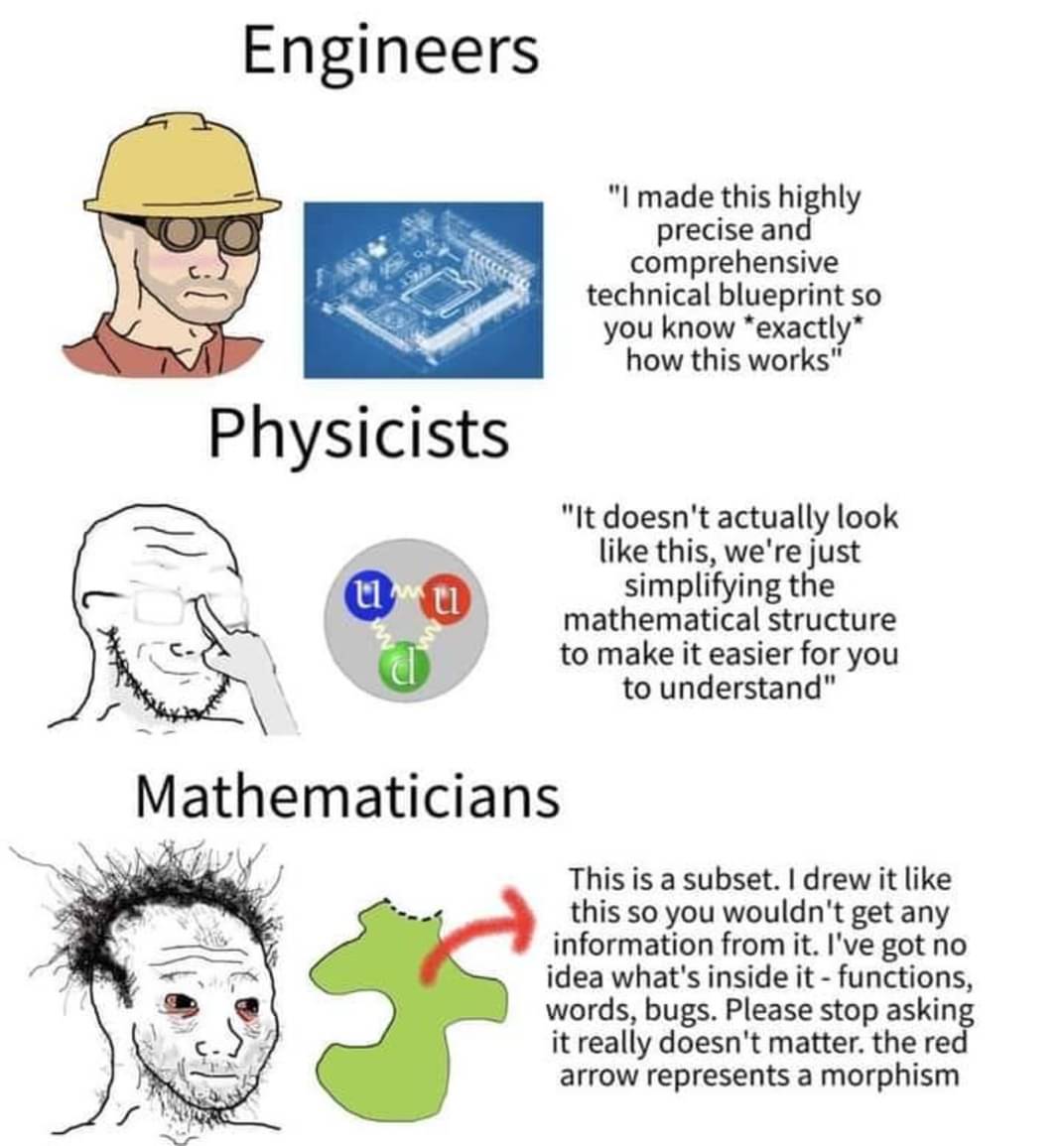this post was submitted on 09 Mar 2024
863 points (98.1% liked)
Science Memes
11148 readers
3056 users here now
Welcome to c/science_memes @ Mander.xyz!
A place for majestic STEMLORD peacocking, as well as memes about the realities of working in a lab.

Rules
- Don't throw mud. Behave like an intellectual and remember the human.
- Keep it rooted (on topic).
- No spam.
- Infographics welcome, get schooled.
This is a science community. We use the Dawkins definition of meme.
Research Committee
Other Mander Communities
Science and Research
Biology and Life Sciences
- [email protected]
- [email protected]
- [email protected]
- [email protected]
- [email protected]
- [email protected]
- [email protected]
- [email protected]
- [email protected]
- [email protected]
- [email protected]
- [email protected]
- [email protected]
- [email protected]
- [email protected]
- [email protected]
- [email protected]
- [email protected]
- [email protected]
- [email protected]
- [email protected]
- [email protected]
- [email protected]
- [email protected]
- !reptiles and [email protected]
Physical Sciences
- [email protected]
- [email protected]
- [email protected]
- [email protected]
- [email protected]
- [email protected]
- [email protected]
- [email protected]
- [email protected]
Humanities and Social Sciences
Practical and Applied Sciences
- !exercise-and [email protected]
- [email protected]
- !self [email protected]
- [email protected]
- [email protected]
- [email protected]
Memes
Miscellaneous
founded 2 years ago
MODERATORS
you are viewing a single comment's thread
view the rest of the comments
view the rest of the comments

True, but I mainly mean in terms of their attitude towards research and their level of skepticism and critical thinking when presented with new information.
Engineers are always thinking in terms of "how can I make this work?" and scientists are trained to think in terms of "where does this theory/method break?"
This means that in general, engineers are far more likely to assume one positive result is significant, whereas scientists are far more likely to be looking at and poking holes in experiment methodology. This is a generalization, but in my experience, engineers are far more likely to fall for pseudoscience BS. Granted, my experience is mostly in chemistry and chemical engineering, but this idea in general has been a topic of discussion and research in peer-reviewed literature for years.
Similarly, from an engineer's perspective, scientists are a great addition to the working group when you need to find the flaws in the system, but awful when you actually just need something to go into the real world and work 80% of the time ;)
Especially when you're time constrained.
Definitely. Lots of scientists fall into the trap of letting "perfect" be the enemy of "good"